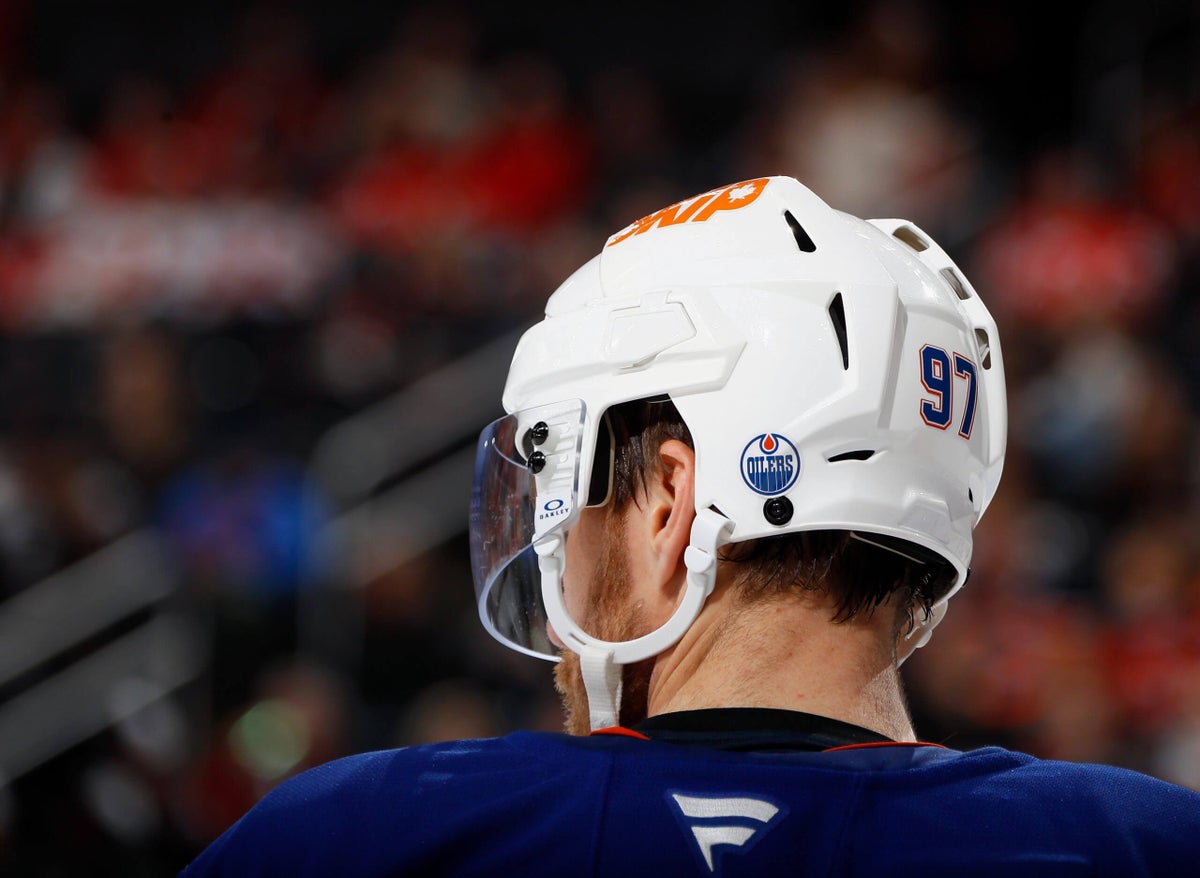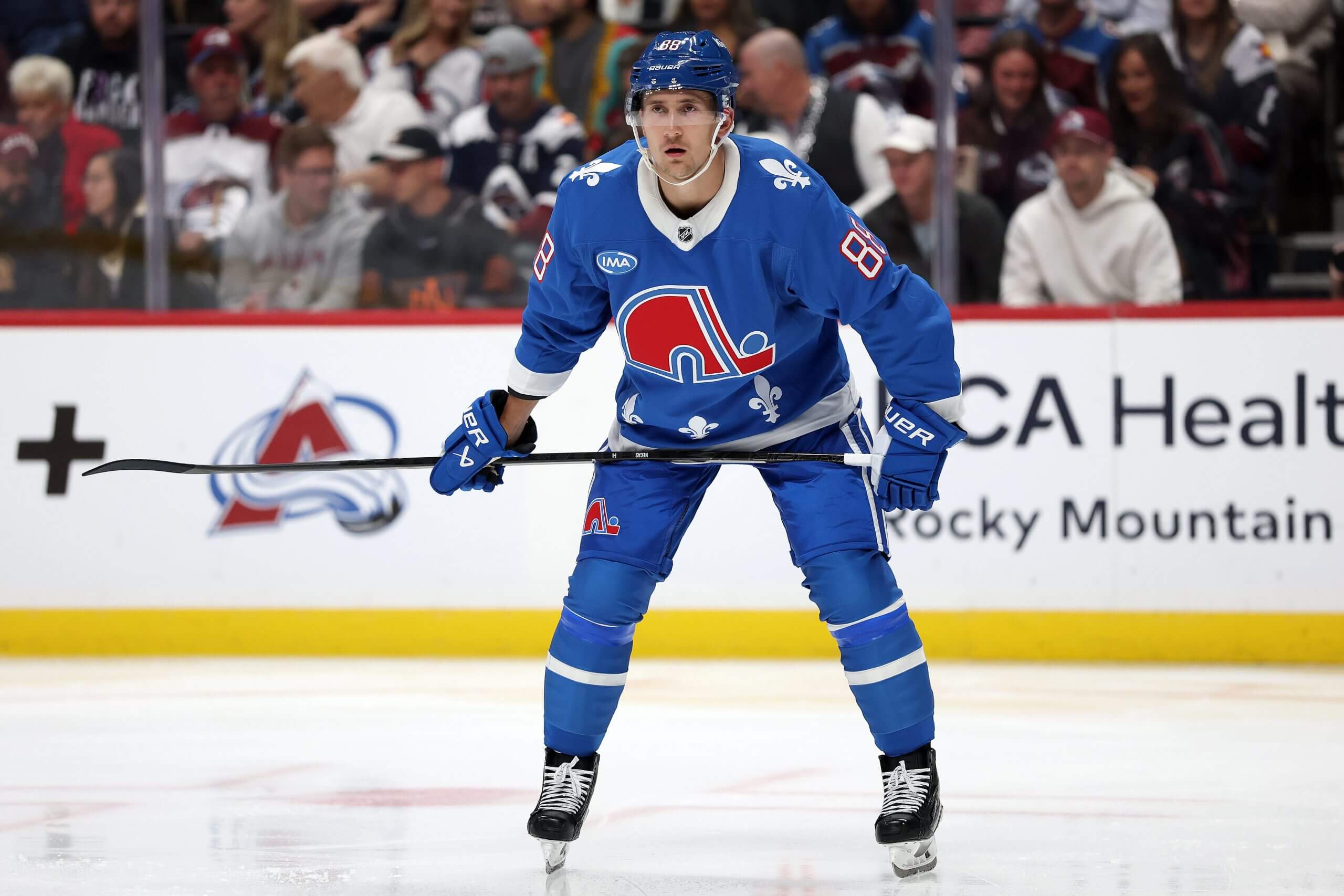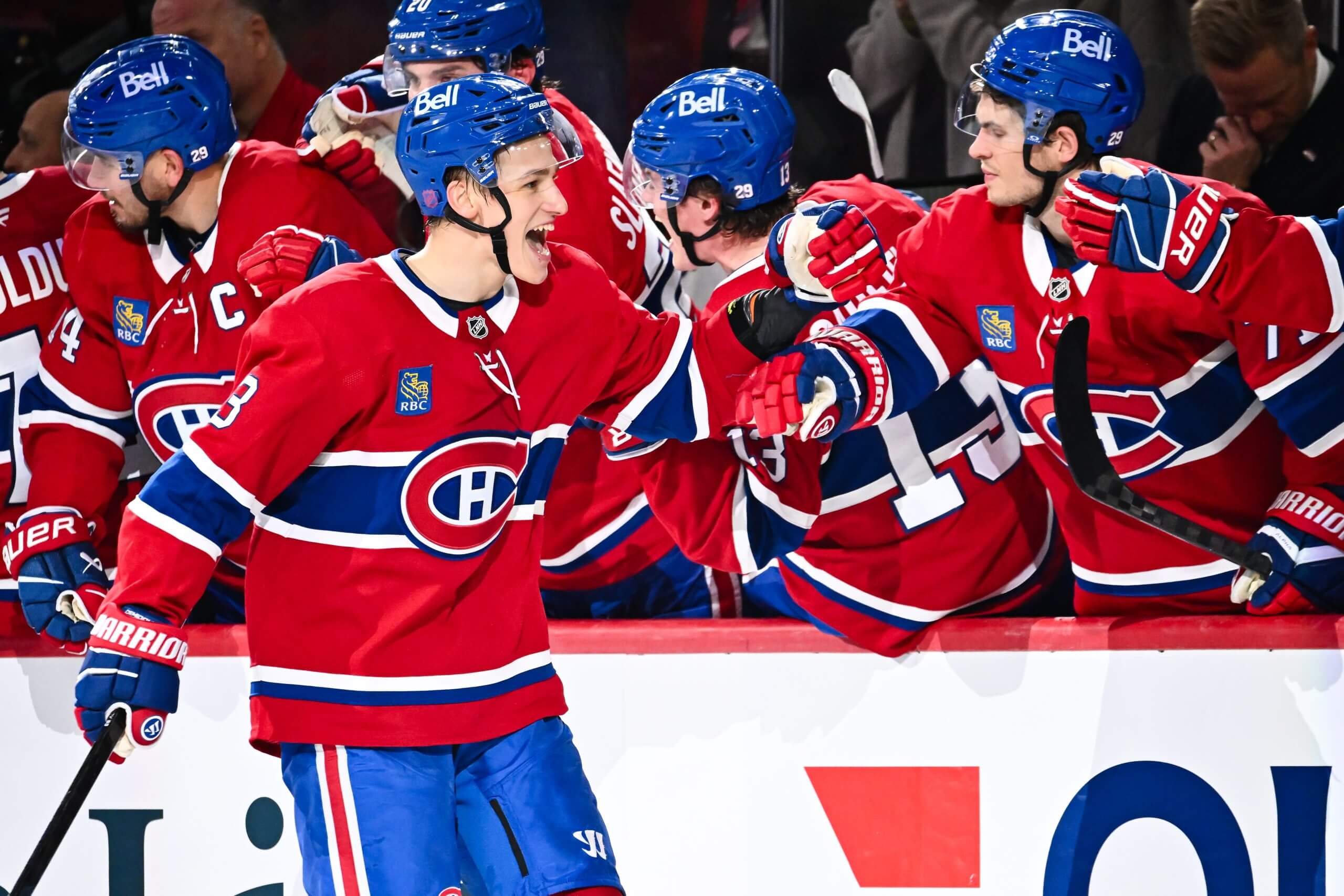There was a distinct Olympic flavor to the questions in Saturday’s Part 1 of our early-season mailbag, with the Milan Games clearly on the minds of readers more than three months out from that tournament.
I tackled more of those in Part 2 below while also diving into Connor McDavid contract fallout, Martin Necas’ impending payday, trade options for the Montreal Canadiens at 2C, Jaromir Jagr’s Hall of Fame wait and more.
Thanks again for reading and responding!
Was the NHLPA OK with the McDavid contract? Do you see any future issues with other players because of it? — Philip S.
I’m not aware of any angst or negative fallout from a contract that was widely viewed as team-friendly, and there’s a good reason for that: There’s only one Connor McDavid. Everything from his playing style to his statistical achievements are basically beyond comparison, so it only stands that his contract is as well.
Sure, teams may ask star players in future negotiations to take a little bit less, but that’s nothing new. And anyone looking at the situation from McDavid’s viewpoint, coming off two straight Stanley Cup Final losses but with some long-term concerns about the Edmonton Oilers’ competitive window, can easily understand why he proposed that contract to management.
While the deal may be a bargain for the world’s best player, it’s certainly not a bad one for McDavid: His $12.5 million average annual value is the largest in NHL history ever handed out on a two-year term, and he preserved career flexibility while signing it. Really, it’s a win-win — a unique deal for a unique talent.
If Martin Necas remains among the NHL scoring leaders, what will his next contract potentially look like? Given the new salary cap environment and the recent contracts we have seen, is it possible that it surpasses Mikko Rantanen’s $12 million AAV? — Eric T.
Coming off a career-best 83 points and with the chance to exceed that total this season (12 points in nine games through Saturday), Necas is well-positioned for a monster payday. Basically, he’s picked the ideal time to make good on his star-level talent.
In fact, while I’d be surprised if he ultimately surpassed Rantanen’s $12 million AAV on his next contract, I certainly can’t rule it out as a possibility. That says something in itself. Right now, he projects to fall in the $11 million range, give or take, but he’s also patrolling the right wing beside Nathan MacKinnon and is poised to have another massive season.
It’s going to put the Avalanche in an interesting dilemma when navigating how to proceed.
Martin Necas is having a standout season at a profitable time. (Matthew Stockman / Getty Images)
Who do you think is facing more pressure at the Olympics: Canada or the U.S.? — Kurtis H.
I’d say Canada and it’s not particularly close.
I was fortunate enough to sit in on the welcome meeting at Hockey Canada’s Olympic Orientation Camp in August, and during that three-hour presentation to prospective players from the men’s, women’s and Paralympic teams, the word “pressure” must have been mentioned 100 times. There was even a joke that drew a lot of laughs about not bothering to come home from Italy if they don’t have the gold medal in tow. I suspect that one landed because there’s an element of truth in it. That’s how the Canadian players and staff feel about the responsibility in front of them.
A major international hockey tournament literally stops the country in the Great White North — in fact, you could actually pinpoint the timing of intermissions during the men’s gold-medal game at the 2010 Vancouver Olympics by looking at water usage patterns across the country.
By no means am I suggesting the Americans want to win any less than the Canadians. Given the buildup since the 1980 “Miracle on Ice,” you might even argue they want it a little bit more. But the pressure on Team USA largely comes from within, while the pressure on Team Canada comes from everyone they’ve ever known in their hometowns.
If Matthew Schaefer continues to play extremely well, as he has been, is there any chance for him to make the Olympic team? — Michael D.
Schaefer has been a revelation in the early days of his NHL career, but I’d wager that his odds of making this Team Canada fall somewhere between “slim” and “none.” Remember that he only celebrated his 18th birthday in September, which is a preposterously young age to choose a player over the many more experienced options decision-makers have.
In fact, Schaefer wasn’t even included among the roughly 90 players Hockey Canada has on a long list of potential selections that was submitted to the International Ice Hockey Federation. While they could still lobby to add him to the final roster at the end of December if he played his way into the conversation, it’s highly unlikely.
Where would a “Central Europe” team combining Germany, Switzerland, Slovakia and Czechia slot compared to the powerhouses at the Olympics? — Candidateid_44
Given that the Czechs, Swiss and Germans have each appeared in a gold-medal game at the IIHF World Hockey Championship over the past three years, I’d say they would have the talent necessary to compete for the top of the podium. Probably viewed a smidge behind Team Canada and Team USA, the co-favorites, but right there with a chance to win it all.
It’s not unlike the Team Europe concept the NHL used during the 2016 World Cup, and that group made it to the final before losing to Canada. You could certainly do worse than building a team around Leon Draisaitl, David Pastrnak and Nico Hischier, among many others.
Which of the following players would be realistic trade options for the Habs as a 2C: Matty Beniers, Bo Horvat or Pavel Zacha? — Jeff S.
Of the three players you mentioned, I think Zacha is the most likely to be dealt this season, but that certainly doesn’t mean he’ll be filling the hole in Montreal’s lineup. The Canadiens and Boston Bruins aren’t generally in the business of doing each other any favors.
My sense is the Habs will remain open-minded in their approach and make sure they’re involved in every important conversation once the NHL’s trade market finally gets moving. It’s no secret they’re looking to address a need at 2C, but they themselves don’t yet know who the answer will be.
Who do you think will be the better player in the long run: Matvei Michkov or Ivan Demidov? — Jeff S.
I included this one because I’m sensing a theme in your queries, Jeff. It feels like you must love the bleu, blanc et rouge. That’s critical context for how I would go about fielding this question: If I was in Montreal, I’d say Demidov, and if I was in Philadelphia, I’d say Michkov. At this early stage of their careers, it’s simply too close to call.
There’s a lot of excitement over Ivan Demidov in Montreal. (Minas Panagiotakis / Getty Images)
The agita over superstar pending unrestricted free agents signing extensions: Why? Isn’t it silly that, if a McDavid or Kaprizov doesn’t sign a long-term extension in July — keeping in mind, they’re still under contract for another full season — media and fandom interpret that as the player not wanting to commit to the team? Maybe an adjustment to signing rules in the next CBA: If a player has one year left on his current contract, he can sign an extension of no longer than 3 years; but, if he waits until the end of his current contract, then he’s eligible to sign for the max seven years. It would cut down on the false drama. — Anonymous
I’ll award you points for creativity with the proposal tabled here, because I think it would effectively address the issue you’ve highlighted. However, I can’t imagine any players (or their agents) willfully handing over the ability to secure long-term security sooner, even if it means they have to put up with extra speculation and agita as a result.
The larger point is well made, though: We sometimes get carried away with the framing of these situations. Heck, the future of Quinn Hughes with the Vancouver Canucks is already a daily concern in that market, and he’s got two seasons remaining on his contract. League rules don’t even allow him to sign an extension before July 1, 2026.
What it comes down to, for me, is how much a segment of hockey fans thirsts for player movement. That’s what fuels these conversations more than anything else.
Are the days of building a team through free agency gone? It seems like most teams lock up young talent early on. Will the big free agent ever exist again? — Jonathan D.
In the short term, those days seem to be gone. We’ve seen it play out over the past month with a potential 2026 UFA class of Connor McDavid, Jack Eichel, Kirill Kaprizov and Kyle Connor each signing deals with their existing teams. For all of those players, it was the third NHL contract of their careers, and none of them have ever even sniffed free agency.
I don’t personally believe it will always be this way, though. While the inherent dangers of hockey will always incentivize players to sign long-term contracts and stay where they are for security, we’re also careening toward a world where the salary cap is about to explode. Fewer teams will spend to the ceiling. Players looking to maximize their value may have to go elsewhere. In short: The big free agent isn’t extinct, but he appears to be dormant.
Can we please look at creating an exception for Jaromir Jagr’s Hall of Fame candidacy? It is so absurd to me that someone who contributed so much to the NHL and to hockey in general is not enshrined because he plays in a minor European league. — Ryan K.
This is one of those quirks that I go back and forth on myself. On one hand, it would be nice to honor him alongside peers from his NHL career — Jagr’s No. 68 already hangs in the rafters at PPG Paints Arena in Pittsburgh — but there’s also value in letting someone come back for an induction and reflect with friends and family when it’s all over.
The fact remains: Jagr is an active hockey player, who continues to live, train and eat in a manner that allows him to still play professionally. Sure, the Czech league isn’t Europe’s largest or deepest league in terms of competition, but every year, players jump directly from that circuit to the NHL. The fact that Jagr continues to play there at age 53 is incredible. He’s not going to be able to do it forever.



